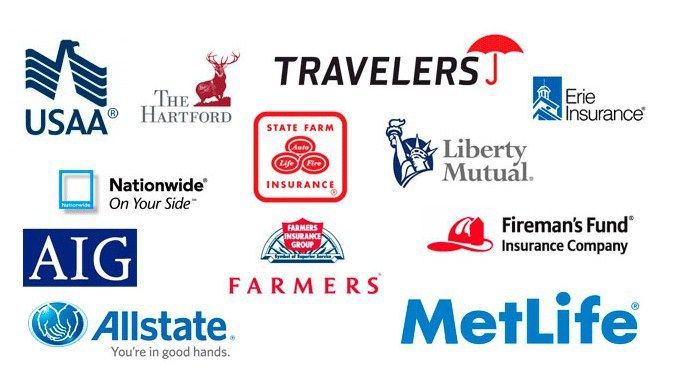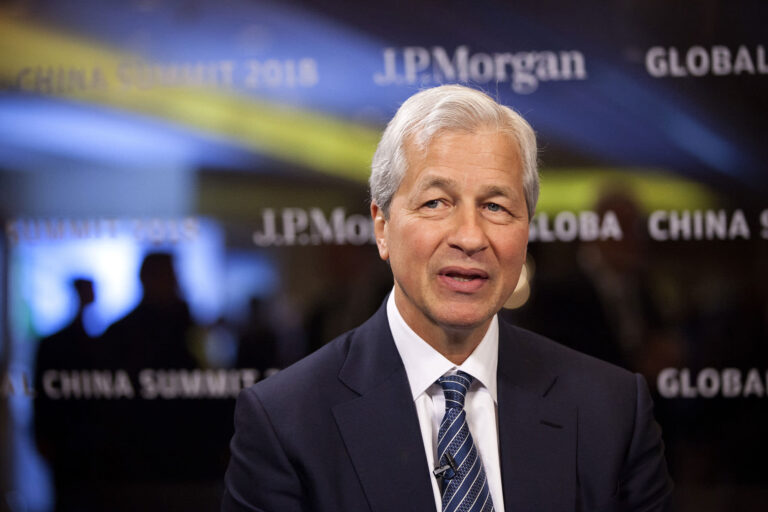Top 10 Fintech Companies in the U.S.
It’s been a heck of a ride, partly due to the pandemic-accelerated transition towards so much online banking and shopping. This is a new reality, and it’s one in which fintech will continue to play an outsize role.
Right before Covid arrived in the country, the average market capitalization of America’s ten largest fintech companies was $9 billion, while the threshold for inclusion was $3.7 billion. These figures have tripled in 2022, with an average value of $27.7 billion and a cutoff of $12 billion.
The industry is enormous and will continue to grow in the years to come. One driving element is that many traditional banks are tech advocates and adopters, aggressively investing in, acquiring, or collaborating with fintech companies. Reason? It is simpler to meet the demands of tech-savvy clients while advancing the business and being relevant.
However, banks aren’t the only financial organizations that have changed due to technology. Digital financial access is the foundation of entire markets, including exchanges for digital currencies, mobile stock services, and e-commerce payment networks.
We take an in-depth look at the top fintech companies in the United States and how they’re changing the financial landscape.
Top Fintech Companies
Here are the most valuable fintech companies in America as of 2022:
1. Stripe
First up is Stripe, a San Francisco – based financial technology company that enables businesses of all sizes to accept payments over the internet. Founded in 2011, the company is now worth an estimated $95 billion.
If that’s alot, keep in mind that it processed $640 billion in payments last year, which is equivalent to Poland’s GDP. For every transaction, Stripe keeps 2.9% of the transactions plus 35 cents (you can do the math to get some sense of the scale of their revenues).
The goals of the company are equally lofty. Its purpose is to “increase the GDP of the internet,” and it has succeeded by serving as a one-stop-shop for companies looking to optimize their e-commerce operations.
The founders of Strife, John and Patrick Collison, are now worth an estimated $20 billion.
2. Klarna
London — Swedish fintech company Klarna raised $639 million in a fresh round of fundraising headed by SoftBank, giving the business a $45.6 billion valuation.
Klarna is one of the biggest companies offering “buy-now, pay-later” options, enabling customers to finance their purchases without incurring interest over a while using monthly installments. Since the coronavirus epidemic started, the demand for these services has increased significantly.
Klarna promotes itself as a better option than credit cards since it believes the latter is bad for consumers. However, it has come under increasing criticism in the U.K., where the government is seeking new regulations to bring regulatory control to the buy-now-pay-later sector.
Klarna makes its money by charging merchants for the service rather than consumers. The founder and CEO of Klarna, Sebastian Siemiatkowski, is now worth $13.0 billion.
3. FTX
In a fresh investment round, cryptocurrency exchange FTX saw its valuation rise to $32 billion, demonstrating continuous interest in the industry even as investors grow nervous about a dramatic decline in crypto prices. The Bahamas-based business announced that it raised $400 million in a Series C fundraising transaction.
FTX is one of the world’s most prominent digital currency exchanges, providing derivatives products. The company, once unknown, has emerged as a significant player in the emerging market, competing with companies like Coinbase and Binance.
The company doesn’t provide trading services in the U.S. Its sister exchange, FTX U.S. performs that duty. After FTX U.S. announced a $400 million investment, its value rose to $8 billion.
The founders of FTX, Sam Bankman-Fried, and Gary Wang, are now worth an estimated $24.0 and 5.9 billion, respectively
4. Chime
In a Series G fundraising round, Chime raised $750 million, valuing the fintech company at $25 billion. That is $10 billion more than its most recent disclosed valuation from October 2020, which was $15 billion.
Chime gained popularity by offering its clients free checking accounts with no overdraft fees and cash advances. It also has a mobile app that enables users to track their spending, set goals, and see their account balances.
Early this year, Chime planned to go public, but the IPO was postponed due to a volatile stock market. In comparison to any previous quarter in the bank’s ten-year history, according to CEO Chris Britt, Chime added more new clients in the first quarter of 2022.
The founder and CEO of Chime, Chris Britt, is now worth an estimated $2.2 billion.
5. Brex
Brex, a financial technology start-up aimed at businesses, has raised $425 million in new funding at a valuation of $12.75 billion.
Brex offers corporate credit cards, expense management software, and working capital loans to start-ups and small businesses.
The company has raised $713 million from investors, including Y Combinator, Kleiner Perkins, and Greenoaks Capital.
The co-founder and CEO of Brex, Henrique Dubugras, is now worth an estimated $600 million.
6. Ripple
According to Ripple CEO Brad Garlinghouse, the fintech company’s market valuation has increased to $15 billion after it repurchased shares from investors in its Series C financing.
For those interested in cryptocurrencies, Ripple is most recognized for its association with XRP, which is used in their On-Demand Liquidity product for international payments. However, there has been so much debate over the sheer magnitude of Ripple’s XRP holdings, with some claiming that it threatens the decentralization of the coin.
With a market capitalization of $29.2 billion, XRP is the eighth-largest cryptocurrency asset at the moment.
The founder of Ripple, Brad Garlinghouse, is now worth an estimated $11.0 billion. He is considering starting a business that deals with artificial intelligence and building robots.
7. Blockchain.com
Blockchain.com, one of the world’s most popular cryptocurrency wallets with over 38 million customers, has raised $300 million in a Series C funding round, valuing the company at $14 billion.
Blockchain.com was founded in 2011 to make it easier for people to use cryptocurrency. The company started as a provider of bitcoin wallets and has since expanded its services to include a cryptocurrency exchange, a trading platform, and an institutional-grade custody service.
The company has raised $530 million from investors, including Google Ventures, Virgin Group, and Goldman Sachs.
The founder and CEO of Blockchain.com, Peter Smith, is now worth an estimated $600 million.
8. Plaid
Fintech company Plaid raised a round of capital that nearly tripled its valuation a few months after a deal by Visa to acquire it fell apart. The company announced a $425 million Series D funding round, led by Altimeter Capital
The new financing boosted Plaid’s valuation to $13.4 billion, up from the $11.65 billion valuation in January 2021 when Visa announced its intention to buy the start-up.
Plaid provides a technology platform that connects financial institutions with the apps used by their customers. More than 11,000 companies use Plaid’s technology, including popular apps like Venmo, Coinbase, and Cash App.
The co-founder of Plaid, Zach Perret, is now worth an estimated $1.5billion.
9. OpenSea
One of Silicon Valley’s most talked-about blockchain start-ups, OpenSea, raised $300 million in additional venture financing, becoming the newest business to profit from the rush to invest in cryptocurrency start-ups.
The start-up is now valued at an astounding $13.3 billion, only four years after its founding, thanks to a new round of funding spearheaded by the investment companies Paradigm and Coatue Management.
OpenSea is an online marketplace for buying, selling, and collecting NFTs (non-fungible tokens). NFT products come in various forms, but the most widely used tokens are works of digital art made by artists who offer their works for auction on the OpenSea website, just like they would on eBay.
The co-founder of OpenSea, Devin Finzer, is now worth an estimated $2.2billion.
10. GoodLeap
Major tech investors like Michael Dell and Laurence Tosi have contributed more than $1 billion to GoodLeap during the last ten months. According to the Wall Street Journal GoodLeap has reached a $12 billion valuation following a financing round in September.
According to the Journal, GoodLeap is one of the largest businesses financing solar rooftops. The business has developed technology linking buyers, lenders, and solar panel installers. Lenders are given software to track finances and client satisfaction.
Vendors can use an app to communicate with lenders and obtain loan approval. By using a different app, consumers can track their energy usage, cost savings, and the amount of solar-generated electricity they sell back to their local utility.
The founder and CEO, Hayes Barnaducci, is now worth an estimated $700 million.
Conclusion
Fintech can be a complex notion due to the vast array of tools, platforms, and services under its voluminous umbrella, as is the case with many other burgeoning technological areas. This list was designed to give the reader a snapshot of the current fintech landscape in the U.S. and some of its most valuable companies. It is worth noting that this list is by no means exhaustive but rather a starting point for anyone interested in pursuing further research.






